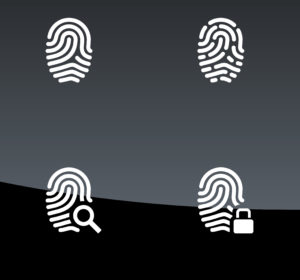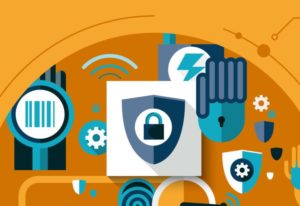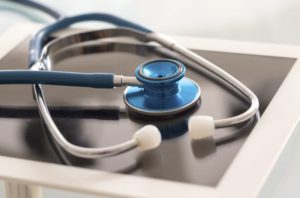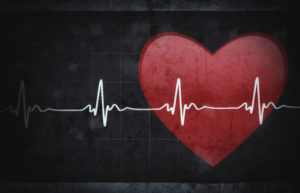Though biometrics serve to bring an incredible amount of benefits to the healthcare industry, the gigantic risk associated with health data has served as a barrier preventing the kind of explosive traction we’ve seen in say, the payment solutions market. That having been said, biometric healthcare solutions are being used every day to shorten diagnosis times, keep accurate records and prevent health insurance fraud.
Today, as part of Healthcare Month, we will be examining four unique deployments of biometrics in hospitals and clinics, many of which are well established.
- BIO-key Technology Makes Giving Blood Easy on the Donors
 Usually when patients are heading to the hospital or clinic it’s for their own good, seeking treatment or advice, but in the case of blood donors the opposite is true: patients giving their precious plasma are doing so for the good of others. That’s why the TruDonor Identification platform from BIO-key International is such a boon to the 3000+ blood banks that license it – it is critical that an important act of generosity have as little friction as possible. If a potential donor decides giving blood is too much of a hassle, they won’t give it.
Usually when patients are heading to the hospital or clinic it’s for their own good, seeking treatment or advice, but in the case of blood donors the opposite is true: patients giving their precious plasma are doing so for the good of others. That’s why the TruDonor Identification platform from BIO-key International is such a boon to the 3000+ blood banks that license it – it is critical that an important act of generosity have as little friction as possible. If a potential donor decides giving blood is too much of a hassle, they won’t give it.
TruDonor works just like a patient ID system, identifying donors by their unique fingerprint. It ensures a positive ID on the donor, eliminates the possibility of duplicate files, and speeds up the sign in process. Most importantly, though, it lets donors leave their cards at home.
“There are simply too many vulnerabilities and negative outcomes from using donor ID cards,” said BIO-key’s Jim Sullivan speaking on the company’s healthcare solutions back in the fall. “They can be shared, duplicated, manipulated, lost and stolen. Our partnerships with great companies in the blood bank software market are a great way to make this solution available without having to piece the parts together. We work together as one seamless solution.”
Further reading: BIO-key Biometrics Aim For a Positive Donor Experience in Blood Centers
- Hitachi Finger Vein Scanners Bring Efficiency To Point of Care in Turkey
 The Social Security Institution of Turkey has been adopting biometric technology since 2012 in an effort to better manage the nation’s health services. An essential piece of the puzzle in this healthcare efficiency initiative has been finger vein recognition biometrics, supplied by Hitachi Europe.
The Social Security Institution of Turkey has been adopting biometric technology since 2012 in an effort to better manage the nation’s health services. An essential piece of the puzzle in this healthcare efficiency initiative has been finger vein recognition biometrics, supplied by Hitachi Europe.
Hitachi’s BIOMIG scanners, which feature wireless functionality, are being used to identify patients at what it calls “point of care”. Thanks to the sub-dermal nature of human vascular patterns, the biometric patient ID system is extremely difficult to spoof. And that’s a good thing too: the BIOMIG scanners are aiding the Turkish government in reimbursing patients through its Universal Health Insurance scheme.
Further reading: Finger Vein Sensors Further Bring Biometric Healthcare to Turkey
- LifeMed ID Offers Multimodal Patient ID in Maine
 Moving beyond the finger’s unique patterns, LifeMed ID offers a high level of choice when it comes to how its customers want to authenticate patients. The company’s patient ID solution, which has been implemented in Brunswick Maine’s Mid Coast Health Services, allows for patient ID to be verified via smart card, fingerprint, facial recognition, iris scan or palm vein image. It also supports driver’s license identification.
Moving beyond the finger’s unique patterns, LifeMed ID offers a high level of choice when it comes to how its customers want to authenticate patients. The company’s patient ID solution, which has been implemented in Brunswick Maine’s Mid Coast Health Services, allows for patient ID to be verified via smart card, fingerprint, facial recognition, iris scan or palm vein image. It also supports driver’s license identification.
Mid Coast Health Services is comprised of 20 clinics and a hospital with 93 beds. The secure cloud technology offered by LifeMed ID allows for health records to be where they need to be at the time they’re required. The security and accountability brought by the solution leads to time and money saved, as wells as a more positive patient experience.
Gale Stoy, Mid Coast Health Services’ IT director, commented at the time of the LifeMed ID implementation: “For Medicare patients, insurance information can change weekly. The system provides the patient’s insurance eligibility along with co-pay. By having patient information upfront and the ability to connect patients with the right record, the billing downstream is accurate. It is all about the patient, patient satisfaction, and patient safety.”
Further reading: Smart Cards and Cloud Technology Bolster Patient ID in Maine
- RightPatient Scans Irises and Keeps Kids Safe

Just last week we reported on a Louisiana hospital that has adopted RightPatient to manage its identity records. The system is iris based and, in the case of Terrebonne General Medical Center in Louisiana, it is working with McKesson EHR – an electronic health record company – to reduce patient fraud, record duplication as well as add the usual efficiencies.
RightPatient is unique, however, in its use of KinderGuardian. M2SYS, the company behind RightPatient, announced the KinderGuardian system in 2013 in the fight against child abduction. The voluntary program allows parents to enroll their children’s biometrics so that, in the event that they go missing, their account is flagged so that they can be positively IDed during subsequent visits to the doctor’s office.
RightPatient and KinderGuardian, together demonstrate the incredible possibilities that open up when a major industry such as healthcare embraces strong identity authentication solutions. Efficiency and security may be the initial goal of a biometric deployment, but next gen identity tech is opening up tangential benefits to society as well.
Further reading: Biometrics Against Child Abduction: M2SYS Announces KinderGuardian
*
Stay posted throughout June as we dive deeper into the world of biometrics and healthcare. Be a part of the conversation by following us on Twitter and tweeting with the hashtag #FBHealth.
—
June 17, 2015 – by Peter B. Counter


Follow Us